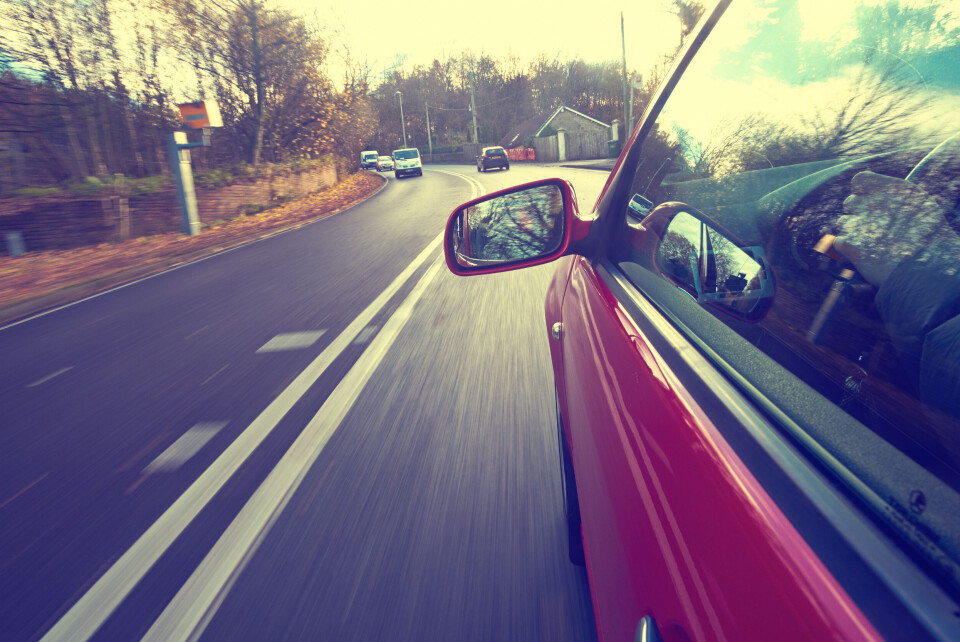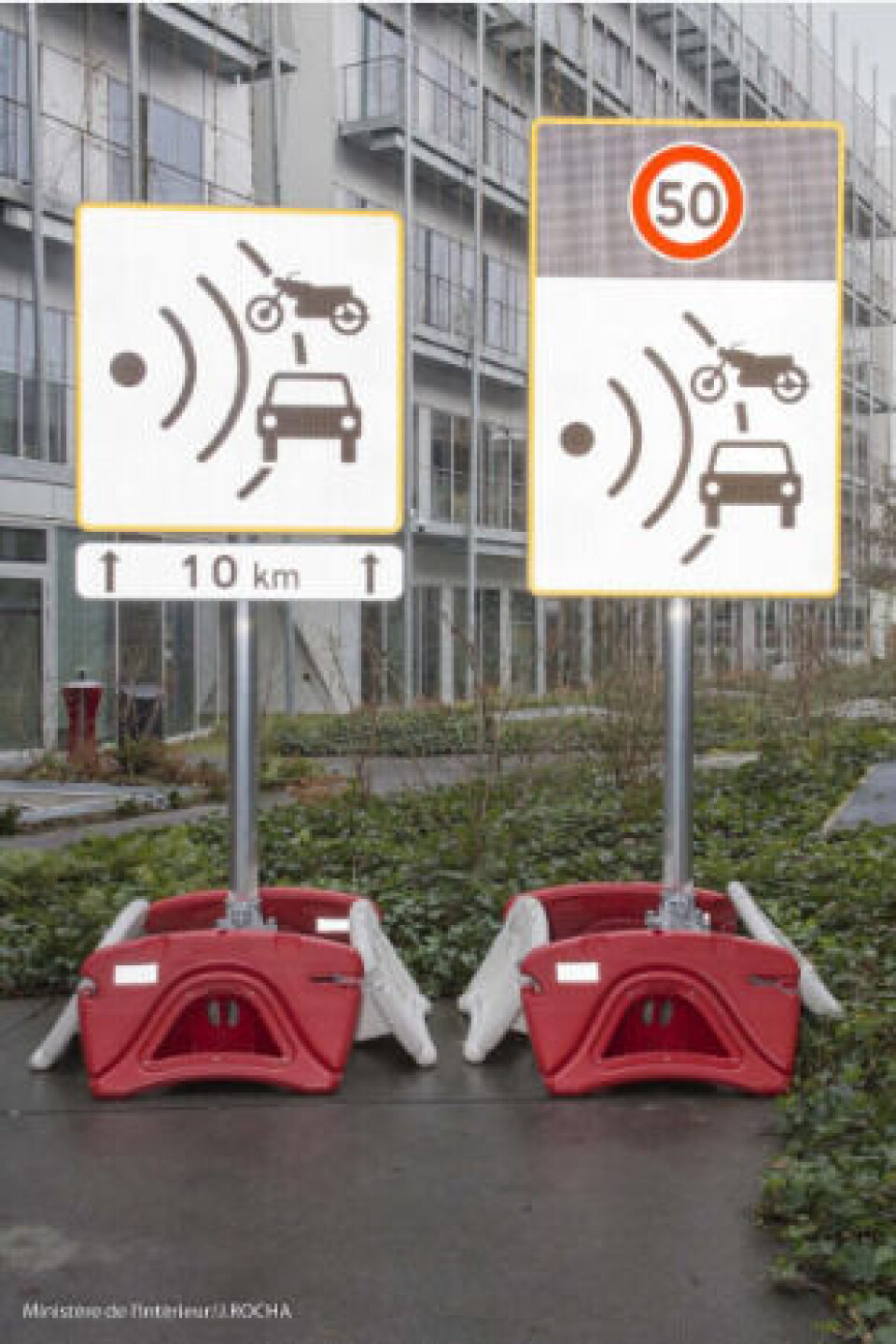-
Check upcoming deadlines for sending Christmas post in France
Deadlines for many international destinations are different
-
Aer Lingus to relaunch Dublin-Montpellier route
Service will fly twice per week during summer season with easy US connections touted as bonus
-
New step-parent law in France? Notaires push for legal and tax recognition
Proposal to recognise legal status with fairer taxation and new rights and duties within families
Less obvious or clearer? New speed radar road signs roll out in France
The road safety agency says the two signs give information more ‘quickly and easily’ but a leading motorist organisation says they will trick drivers as less visible

At least 9,000 new speed warning signs are to be installed on roads across France this year in a bid to give clearer messages to drivers and make roads safer.
The plan is in line with an objective set by road safety agency Sécurité routière five years ago. The signs first started to be rolled out in 2017 with the plan set to reach completion this year.
The signs will inform motorists of speed limit areas that are subject to enforcement by cameras.
Two signs, shown here, are set to be installed (where they are not already present).

Credit: Ministère de l’Intérieur / J.Rocha
- The first sign (left) shows the same radar, motorbike and car symbol, but underneath shows the length of road that the checks apply to, such as the next 10km, with arrows showing straight ahead to symbolise the next stretch of road. This sign is black and white and does not show the speed limit.
- The second (right) shows a speed limit that must be respected, e.g. 50km, above a radar symbol along with icons for a motorbike and car (a now widely-recognised symbol that indicates a speed camera check).
Speed check zones can extend from just five kilometres of road to a full 80 kilometres, Sécurité routière states.
Both signs have a yellow border.
Sécurité routière stated: “The outer yellow border has been maintained to ensure contrast and visibility, as well as the black pictograms on a white background symbolising [radar] waves moving towards a motorbike or car.”
At least one, if not both, signs will be installed in areas concerned “so that no user can enter this road without being informed that checks are possible”, the agency said.
The signs will replace older signs that read “Pour votre sécurité, contrôles automatiques”. The new language will be: “Pour votre sécurité, contrôles radars fréquents”.
Sécurité routière said that the new signs will convey the meaning more quickly and easily, as “shown in studies conducted with user groups as part of the development of these signs”.
And while the signs will no longer show vans or HGVs on them (but motorbikes and cars only), this change has been done to simplify the signs, and not because larger vehicles are no longer subject to speed checks, the agency reiterated.
While the agency claims that the new signs will make speed checks clearer to motorists, the drivers’ association 40 millions d’automobilistes condemned the plans, saying that the signs will trick motorists as they are “less visible and less common than the old ‘radars automatiques’ signs”.
It said the old signs were easier to understand as they indicated that a camera was about to come up, whereas the new ones were vaguer, indicating the possibility of coming across them over tens of kilometres.
"Speed cameras, again speed cameras, always speed cameras! It's been almost 20 years since they became the be-all and end-all of Sécurité routière’s road safety policy, and almost 10 years since they have made any improvement to road users’ safety,” stated Pierre Chasseray, general delegate of 40 millions d’automobilistes.
He said that speed camera checks brought in €700million for the state in 2021, with most fines issued to people who were less than 20k/h over the speed limit in 90% of cases.
Daniel Quéro, head of the association, called the use of speed cameras "disgusting and unacceptable".
“In France, we prefer to trap motorists and fine them for minor, non-accident causing offences, which they discover in their letter boxes several days or even weeks later,” he said
“It is urgent to put an end to all this.”
Related articles
What is the margin of tolerance for speed cameras in France?
12 questions and answers about private speed radar cars in France
























